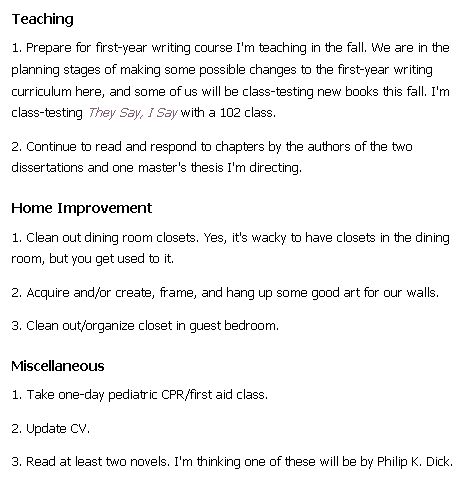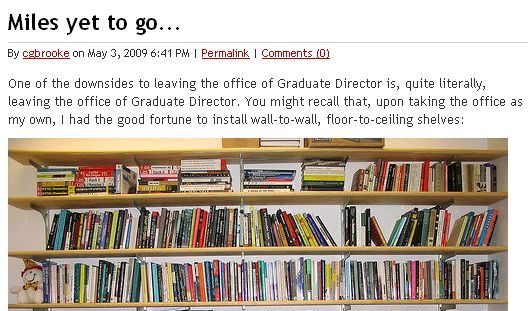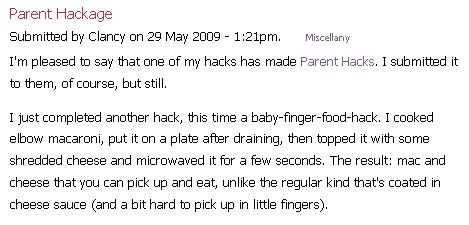Blogs represent an "in-between" space among the digital texts we studied. Numerous renowned and respected scholars (e.g., Stanley Fish, Eric Goldman, Lawrence Lessig) maintain blogs, and some of them use blogs as springboards to publication, as we address later in this section. Blogs, however, are not frequently associated with academic work. More often they are seen as online diaries or outlets of citizen journalism (Bruns, 2009; Levinson, 2009), and sometimes both. Indeed, this combination can make blogs hard to classify, so it is clearly reductive to posit a homogeneous category. Blogs can be used for multiple purposes, and one of these purposes, we believe, is scholarly activity—even if it happens alongside personal or journalistic writing.
Despite their designation as scholarly blogs, all the blogs we studied include posts on personal and professional topics, including scholarly musings, personal reflections, and event reports. Collin Brooke (2009), for example, posted on baseball and method versus methodology. Clancy Ratliff (2009) posted photos of her new baby and her thoughts on what first-year composition classes require students to do to write research papers. Notably, individual posts sometimes combine personal and professional ideas. Ratliff, for instance, provided the following summer to do list:

and Brooke explained his process of moving out of the grad director's office both physically and psychologically.

This sense that blogs blur personal and professional spaces is hardly new. Important for our purposes here is that the blogs we analyzed generate knowledge with both types of posts. The presence of personal posts does not diminish the scholarly moves being made. In fact, we might argue they enhance them. In some cases, personal posts illustrate what Ernest Boyer (1990) would call the scholarship of application (p. 16ff). Ratliff, for instance, applied the notion of hacking to cooking for her toddler (“Parent Hackage,” May 29, 2009).

These blogs, then, provide a venue for publicizing the applicability of theoretical, methodological, and pedagogical ideas. In addition to mixing personal and professional topics, the blogs mix argumentative and speculative approaches. Posts are somewhat balanced between these rhetorical moves.
The Prezi below illustrates ways in which this scholarly activity manifests itself along the five categories of rhetorical moves we studied.
Scholarship on the Move – Blogs, by James P. Purdy and Joyce R. Walker on Prezi
(transcript for blog prezi)